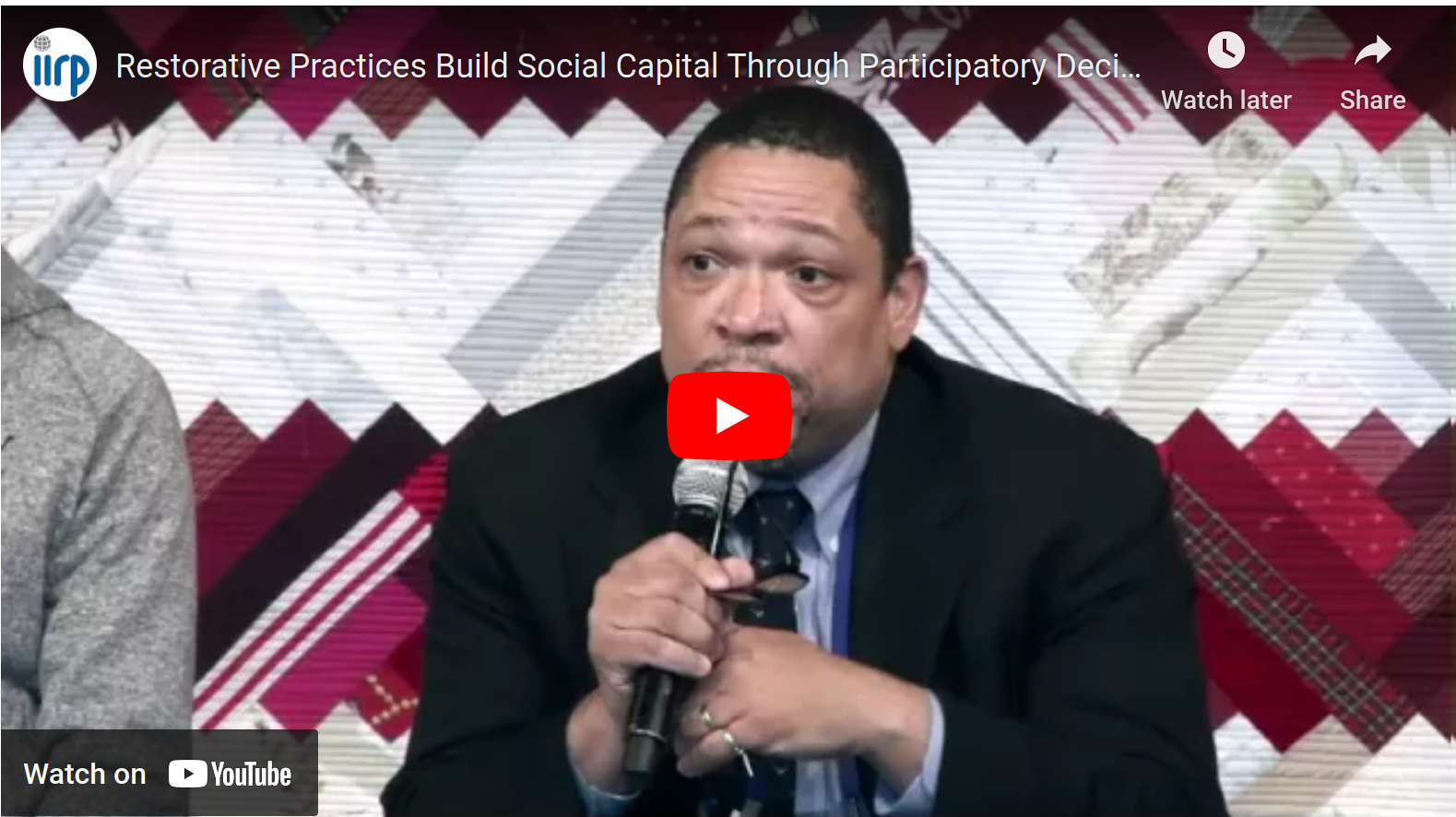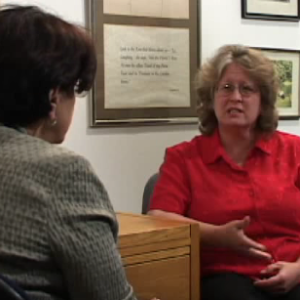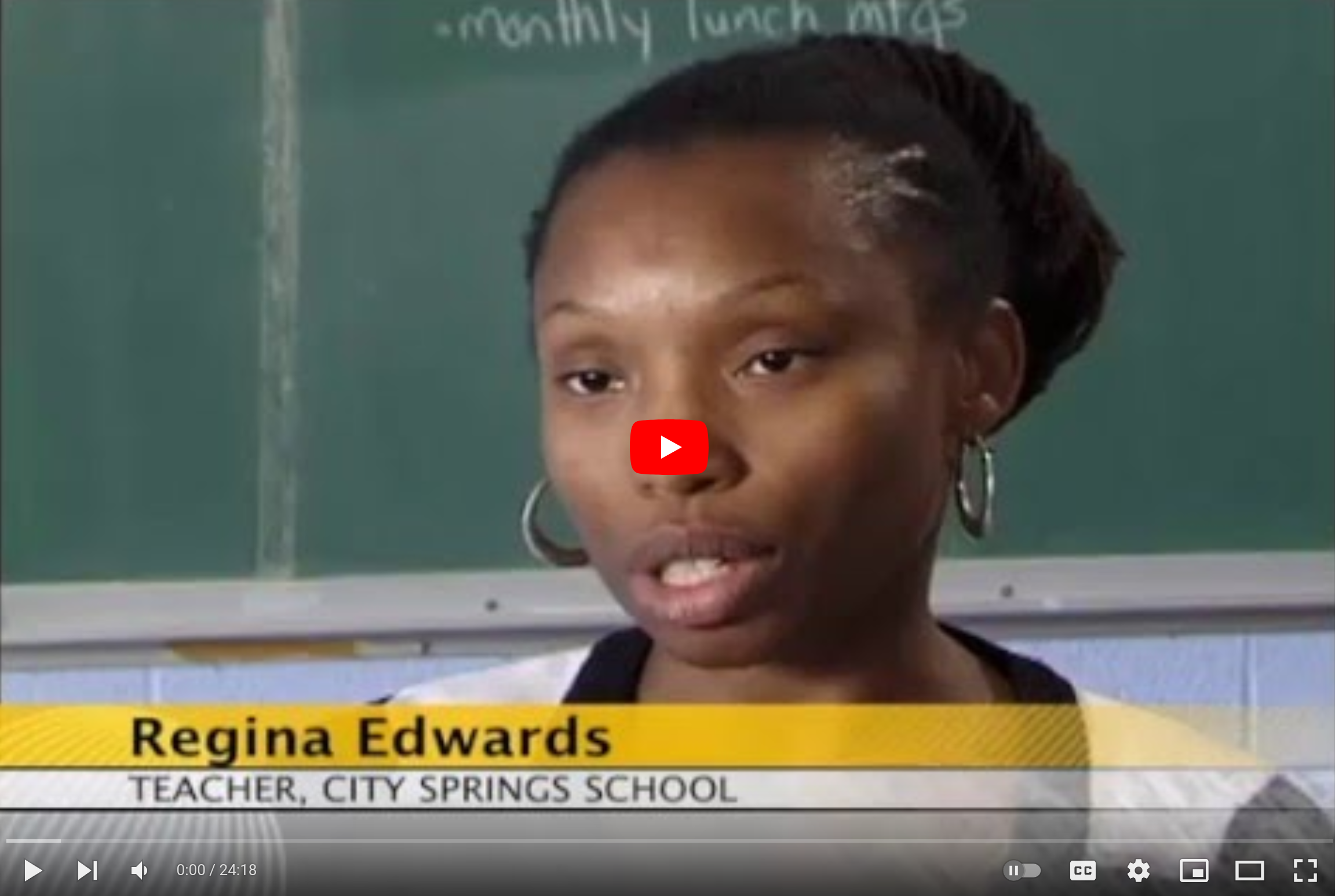News & Announcements
- Details
- Written by IIRP Staff
IIRP Director of Continuing Education Keith Hickman participated in a panel, Restorative Justice Now, at the Citizen University National Conference: WHO IS US? Race, Citizenship, and America Now, March 18-19, 2016. The discussion revolves around reducing suspensions and discipline disparities for students of color in schools. Hickman widens the context by pointing out how restorative practices build social capital through participatory learning and decision-making for staff and students. These practices hold the potential to transcend school and isolated programs to affect the wider community.
- Details
The International Institute for Restorative Practices (IIRP) is embarking on an unprecedented initiative to improve the lives of children and families in Detroit, Michigan, USA. By mobilizing a “whole-neighborhood” approach, individuals will be active stewards of their community. The goal of the program, “Toward a Restorative City: Focus on Schools and Sustainability for the City of Detroit,” is to embed restorative practices in neighborhoods, schools and systems. The Skillman Foundation is underwriting a multi-year grant in support, beginning with $250,000 for 2016.
- Details
- Written by John Braithwaite
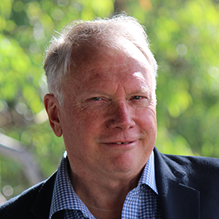 In this guest blog, Professor John Braithwaite, who leads the Peacebuilding Compared project and is the founder of RegNet School of Regulation and Global Governance at the Australian National University, discusses the parallels between Motivational Interviewing and restorative practices and describes a framework for understanding why these approaches work.
In this guest blog, Professor John Braithwaite, who leads the Peacebuilding Compared project and is the founder of RegNet School of Regulation and Global Governance at the Australian National University, discusses the parallels between Motivational Interviewing and restorative practices and describes a framework for understanding why these approaches work.
- Details
- Written by Joshua Wachtel
Motivational Interviewing (MI) is a collaborative, restorative dialogue process that supports people in identifying their goals and achieving positive changes in their lives. Practitioners in a wide range of settings — including juvenile justice, drug and alcohol recovery, health care, education and the workplace — are employing MI to help people discover for themselves what stops them from making progress, so they can move forward.
“It’s all about being authoritative without being judgmental,” says Dawn Schantz, Motivational Interviewing consultant for juvenile justice in the state of Pennsylvania. Instead of giving advice, in MI, the focus is on building rapport, then engaging people in conversations centered on identifying their own intrinsic reasons for wanting to live differently.
- Details
- Written by Joshua Wachtel
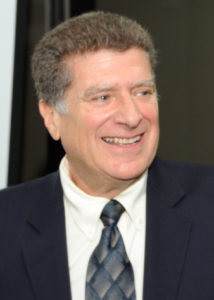 Ted Wachtel, founder of the International Institute for Restorative Practices (IIRP) Graduate School, who stepped down as IIRP president last summer, has launched a new website, Building a New Reality, as a platform for sharing his ideas about the implications of restorative practices in the areas of politics, governance and economics.
Ted Wachtel, founder of the International Institute for Restorative Practices (IIRP) Graduate School, who stepped down as IIRP president last summer, has launched a new website, Building a New Reality, as a platform for sharing his ideas about the implications of restorative practices in the areas of politics, governance and economics.
Wachtel says, “I’m doing a new video and text blog about restorative in some new areas that haven’t been discussed so much – restorative implications for politics and economics. I’m really interested in how to build a new reality in those areas. What I want to do is talk about things that are proposed, underway and longstanding that represent new possibilities.”
Wachtel will discuss ideas for revamping democracy to make it more responsive to the people rather than special interests. He also believes that people can reclaim some of the roles that have over time been ceded to government.
- Details
- Written by Joshua Wachtel
Dawn Schantz, Motivational Interviewing consultant for juvenile justice in the state of Pennsylvania, explains how the skill of motivational interviewing can simultaneously hold people to high expectations while also providing high support for helping them internalize their own motivations for change.
- Details
- Written by Joshua Wachtel
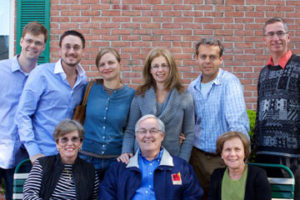 Sandy and Harry Strachan (front left and center), founders of the Strachan Family Foundation, are pictured with board members (including family) and executive director Miguel Tello (back right)
Sandy and Harry Strachan (front left and center), founders of the Strachan Family Foundation, are pictured with board members (including family) and executive director Miguel Tello (back right)
The Strachan Foundation is partnering with the Restorative Practices Foundation to fund its grantees to attend the IIRP Latinomèrica Conference in San Josè this June. This will allow representatives of nonprofit community leaders across Latin America to share and further their knowledge of restorative practices with each other and attendees from around the world.
The Strachan Foundation was founded by businessman and academic Harry Strachan to honor and advance the social investment side of the mission of his parents and grandparents, prominent Protestant missionaries in Latin America. In addition to their religious mission, they helped established schools, orphanages, media outlets and social services to support the “whole individual.”
- Details
- Written by Kristin Oakley
Beyond Zero Tolerance documents the implementation of restorative practices in several schools in the U.S.A., the Netherlands, and Hull, England.
- Details
- Written by Joshua Wachtel
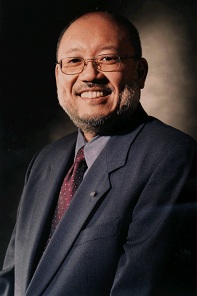 J.D. Hokoyama, a nationally known speaker and retired founding board member and CEO of Leadership Education for Asian Pacifics, Inc. (LEAP), has joined the International Institute for Restorative Practices (IIRP) Graduate School Board of Trustees.
J.D. Hokoyama, a nationally known speaker and retired founding board member and CEO of Leadership Education for Asian Pacifics, Inc. (LEAP), has joined the International Institute for Restorative Practices (IIRP) Graduate School Board of Trustees.
Hokoyama began his career as a high school English teacher and elementary school principal. Restorative practices has always been intuitive for Hokoyama. It’s only in the past few years that his friends Keith Hickman, director of Continuing Education, and IIRP instructor Tanya Lewis, have been urging him to learn more and get involved.
“The whole field seems fascinating to me,” says Hokoyama. “I know it’s always better if the parties involved in conflict, through some guidelines, can work through their issues rather than having solutions imposed on them. I’ve been doing that all along and feel very strongly that’s the way to go.”
- Details
- Written by Joshua Wachtel
Attorney and IIRP Graduate Certificate holder Hazel Thompson-Ahye speaks in favor of the United Nations Committee on the Rights of the Child ban on corporal punishment. Hear her interview on the radio in her country, Trinidad & Tobago. She also speaks about restorative practices developments.

Restorative Works Year in Review 2024 (PDF)
All our donors are acknowledged annually in Restorative Works.

